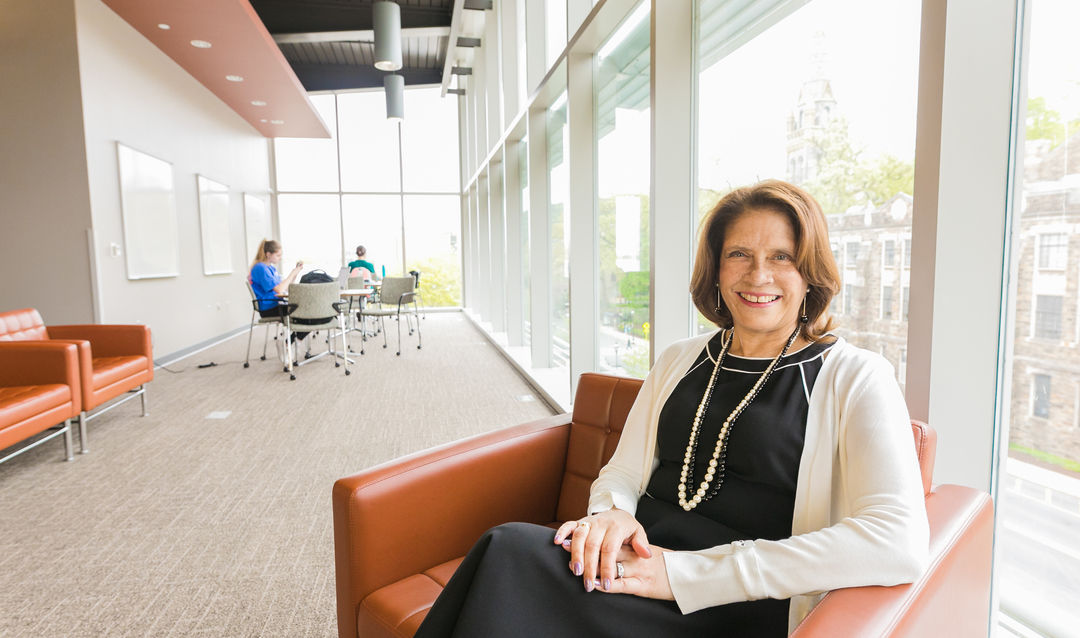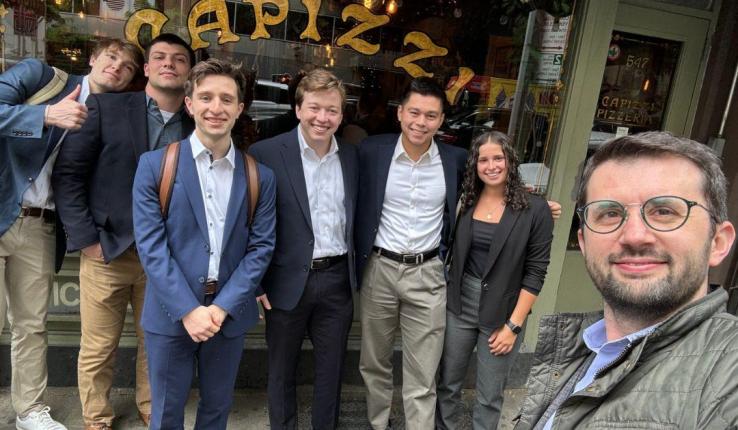Since the full impact of COVID-19 walloped the university (and the United States, and the world!) last spring, we all have given in to moments of panic. We wonder: What happened? When is it going to end? How is it going to end?
I am not a scientist, so I can’t tell you what happened. I am not an epidemiologist, so I can’t tell you when it will end. I am not a soothsayer, so I can’t tell you how it will end. But as someone who has spent most of her professional life engaged in the real estate market, I CAN tell you that panic is not the answer. I started working in the commercial finance market in the go-go late 1980s. It felt like I was closing a deal a week back then. I took time off for maternity leave in 1991, and when I got back, it was like someone had turned off the lights and walked away. There were no deals. Our mantra became, “Stay alive till ’95.” Well, the commercial real estate market not only stayed alive—it thrived. By the time the next big real estate crash occurred in 2008, I had moved to academia. My more scholarly vantage point allowed me to be more sanguine about the issues.
Part of the underlying cause of both economic downturns was overlending and exposure to risk in the real estate markets. Ironically, the resolutions to the first crisis (notably the securitized secondary mortgage market) subsequently caused the second. With the past downturns, bad business decisions were the cause. We were able to solve the problem by no longer making those decisions; we were able to rectify what had happened. When the recession is caused by a pandemic, however, that’s not a business decision. We can’t rectify the coronavirus.
This recession wasn’t caused by real estate, but real estate, like other sectors, is taking a beating. The pandemic affects almost every facet of our lifestyle—from working at home, to masking up, to seeing the revenue of our businesses possibly slow to a trickle. Our lives today are very different than last year at this time. At Lehigh Business, we don’t have all the answers, but some of the faculty research featured in this issue was done at the start of the pandemic and attempts to find clues to address a few of these problems.
What we can do is determine how to harness the change that’s occurring. Maybe that looks like a partnership between tenants and landlords, creating better infrastructure, strengthening support for entrepreneurs, or maybe even renting your future office space from Amazon. As we rebuild, it’s a chance to restructure for the long-haul, avoid the quick fixes and consider the effect on all socio-economic levels.
We will not be isolated forever. We need our coworkers. Agglomeration is the idea that there is a synergy created with co-location (see “Office Space Extinction?”). It is why there are cities. It’s why there are university campuses.
As I learned years ago, it will work out. We’re never going back to the way it was. It’s going to be different, but it’s going to be good again.
Let’s all “Stay alive till ’25,” at the very least!
Georgette Chapman Phillips
The Kevin L. and Lisa A. Clayton Dean of the College of Business
@LehighBizDean
BONUS: Hear Dean Phillips talk about getting through two economic downturns.





